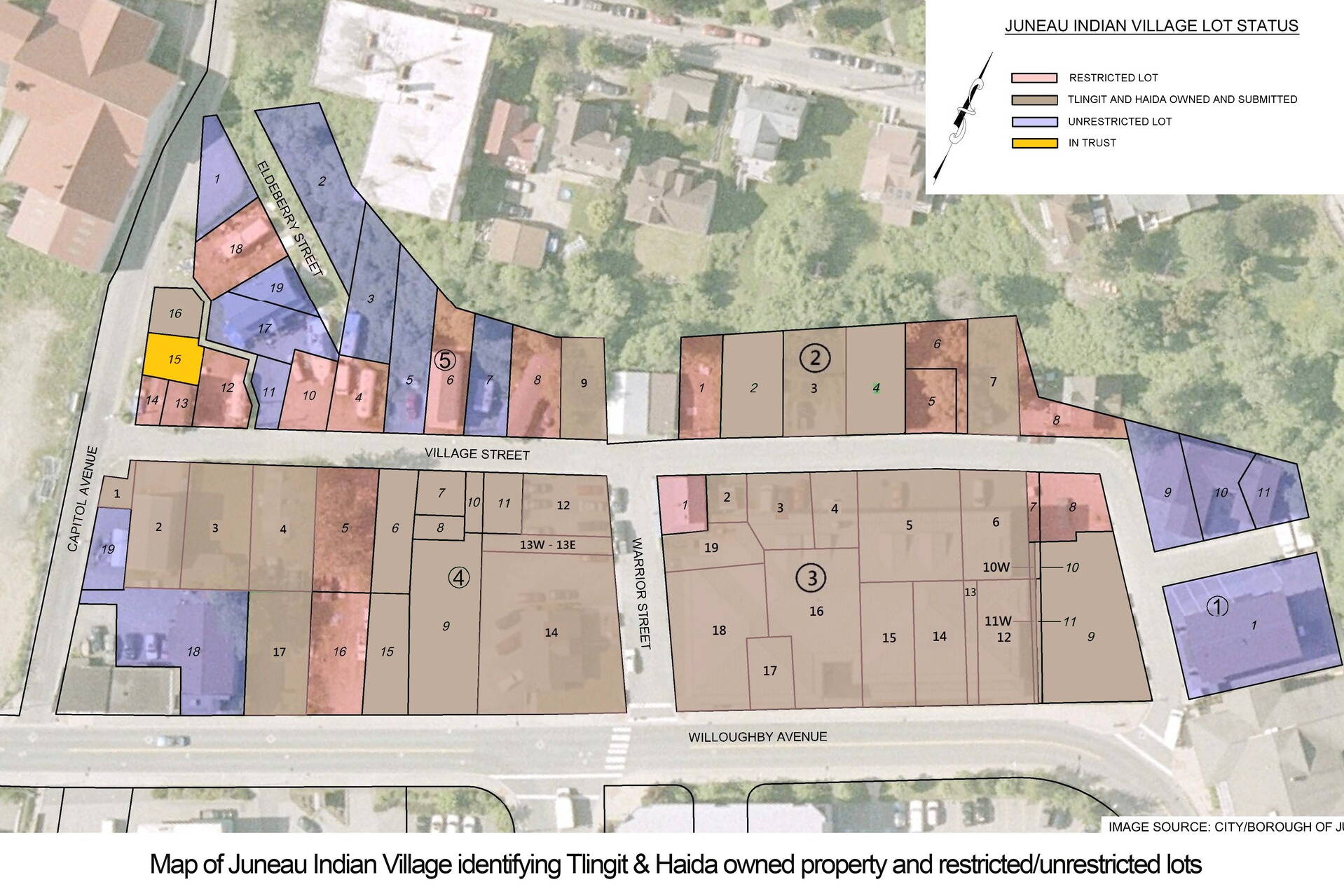A tiny parking lot on a little-traveled downtown side street is now a landmark achievement for Alaska Natives in Juneau, with the federal government approving a “land-into-trust” application Thursday that paves the way for a range of self-determination, economic and other benefits for the property’s owners.
The application by the Central Council of the Tlingit and Haida Indian Tribes of Alaska is only the second approved in the state, following one in Craig five years ago. In addition to making Tlingit and Haida eligible for more federal services and programs, the approval also addresses the “landless tribe” issue that has been problematic since the passage of the Alaska Native Claims Settlement Act in 1971, President Richard Chalyee Éesh Peterson said Friday.
“Tlingit and Haida will no longer be a landless tribe, but be eligible for a much greater rage of land-based programs,” he said.
Land-to-trust transfers, also known as “fee-to-trust” acquisitions, transfer a land title to the federal government to be held in trust for the benefit of an individual or tribe. The U.S. Department of Interior, which authorizes the transfers, states among the advantages for tribes are being granted certain rights-of-way and the ability to enter into leases for use of the property’s natural resources.
The property in the approved application, first submitted in 2009, is a parking lot on Capitol Avenue in the historical and cultural area known as the “Juneau Indian Village,” according to a Tlingit & Haida news release. Peterson said it will remain a parking lot, but the approval “brings us one step closer to ensuring our tribe will have a center for our tribal government in perpetuity.”
“The work is not done yet,” he added. “We still have fee-to-trust applications pending that we are hopeful the U.S. Department of the Interior will approve. Many of these parcels were once held subject to a restriction that prevented their alienation or taxation. When Tlingit and Haida purchased these parcels from its tribal citizens, the Bureau of Indian Affairs terminated the federal restrictions that protected them, and it is the tribe’s priority to restore these protections.”
However, Peterson expressed optimism about the fate of the still-pending applications.
“I think we believe this decision speaks for itself in that regard,” he said.
The Interior Department, in an announcement of the application’s approval, stated “federal policies dating back more than a century have eroded the land base of Indian Tribes across the United States…tribes have faced delays and increasing costs in efforts to develop housing projects, manage law enforcement agencies and develop local economies as a result of unnecessary hurdles in the land-into-trust process.”
The first such transfer in Alaska was approved in 2017 after the Craig Tribal Association submitted an application in 2015 for a 1.08-acre parcel where offices and a town hall are located. It was the first approval after the Department of Interior issued a revised rule in 2014 that reserved a policy dating back to the enactment of the Alaska National Interest Lands Conservation Act in 1971 that barred the Bureau of Indian Affairs from processing land-into-trust applications in Alaska.
Peterson said a multitude of factors are involved in the 13-year wait for the approval of Tlingit and Haida’s application, but a current presidential administration in favor of the policy is responsible for it occurring now.
“I’ve been smiling all day today as a result of this,” Wáahlaal Gíidaak Barbara Blake, a Juneau Assembly member and director of Alaska Native Policy Center with First Alaskans Institute, told Native News Online. “For a long time, we have been attempting to gain many of the same rights that our tribal brothers and sisters have down there in the Lower 48. We’re just starting to see this come to fruition after so many years of really working hard to ensure that the federal government is holding their responsibility to our tribes here.”
• Contact Mark Sabbatini at mark.sabbatini@juneauempire.com

